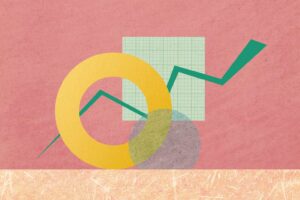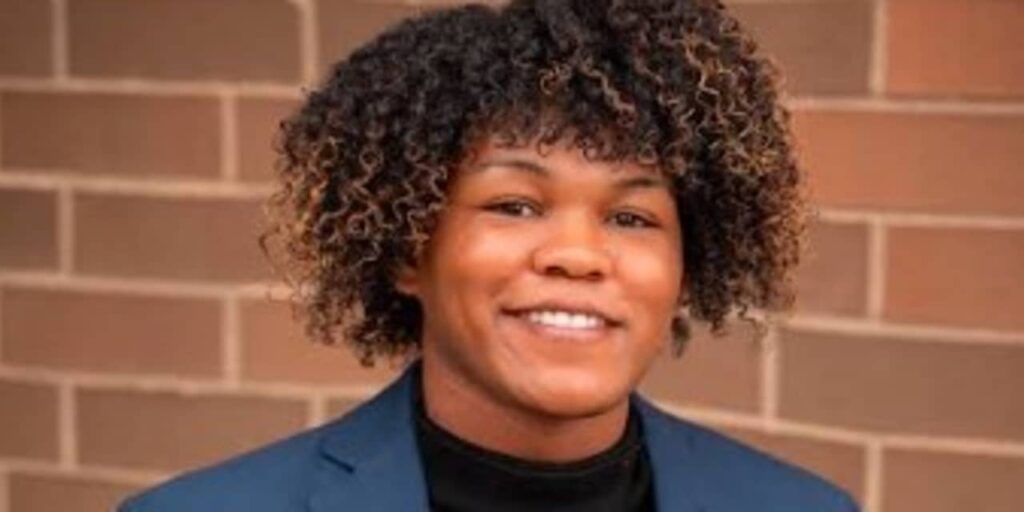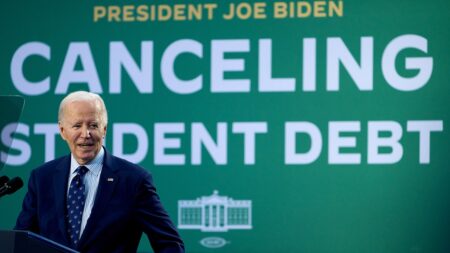Over the past few years, Keishaun Wade’s weekly schedule has featured days so packed with work and community-college classes in his hometown of Flint, Mich., that he often doesn’t have time to eat. During this period, he’s worked several jobs, including in a factory, as a receptionist at a doctor’s office, as an intern at a nonprofit, and researching and writing as part of an archival project.
The goal of this sometimes-punishing schedule: To save enough money to pay off a debt he owes to Cornell University, where Wade was once a student and where he hopes to return. So far, he says, he’s saved up about $8,500, or roughly the principal of what he owes, but the Ivy League school is telling him that he still has to pay the fees charged by the collection agency where Cornell sent his debt.
Having the debt in collections has not only impeded Wade’s ability to return to Cornell, it has made his life harder in other ways.
“It’s honestly impacted my mental health a little bit,” Wade, 23, said. The school’s decision to place the debt in collections instead of working with him directly, he said, suggests that “their main focus is not about me, it’s about fulfilling their contractual obligations to collect on this debt.”
Millions of students owe money to their schools
Wade’s experience highlights the ways that debt owed by students to their colleges, known as institutional debt, can complicate their path to earning a degree. About 6.6 million students owe $15 billion in institutional debt, according to a 2020 analysis from Ithaka S+R, a nonprofit research and advising firm focused on higher education.
Schools will go to varying lengths to collect on this money, including barring students from re-enrolling, sending the debt to collections and even suing former students. Recently, the Department of Education cracked down on another common practice used by schools to get students to pay — withholding transcripts.
Wade’s story also shows how students can get caught up in complicated financial-aid policies. He shared his experience Wednesday during the public-comment period of a Department of Education rulemaking effort surrounding some policies related to the way colleges disburse financial aid.
To Wade, who is a first-generation and low-income college student, the battle over the debt shows the limits of elite colleges’ commitments to enrolling students like him from traditionally underrepresented communities, including through generous financial-aid policies.
“I feel that Cornell can do more to ensure my status as a student there,” he said. Wade was drawn to the school because of its reputation, its prestigious urban- and regional-planning program and a financial-aid package that he was told would cover his costs.
Now, he said, it’s interesting to think back on his first few semesters at the school, when he experienced a “feeling of imposter syndrome and a feeling of not really being in a space where I was accepted … or celebrated,” Wade said. “Then to see that actually manifest itself in the university’s willingness or unwillingness to keep me as a student there.”
First a check, then a bill
Wade said he ended up owing money to Cornell because the school issued him a financial-aid refund — the money that’s left over from a student’s financial aid after the bills they owe to the school are paid — about five weeks before it billed him for housing.
“My knowledge of refunds at the time was simply that everything would be accounted for through the office of the bursar, and I would only receive direct funds where they were the result of money being left over,” Wade wrote in his public comment. “That is to say, after the university processed all debits, I thought any remaining money would be mine for additional expenses that I might incur throughout the semester.”
So Wade spent the $5,173 Cornell had deposited into his account. At the time, he wrote in his public comment, his family was coping with eviction and car trouble.
“That money helped me and my family tremendously, and I was incredibly thankful to Cornell for its commitment to caring for students in need. That faith however, proved to be a huge mistake,” he wrote.
Wade actually owed about $8,500 to the university for housing and some other costs.
Wade said he first discovered the issue when he tried to enroll in classes at the start of his junior year, in the fall of 2021. He’d taken a leave of absence in the fall of 2020 and then successfully enrolled at the school in the spring of 2021. But when he tried to sign up for classes in the fall of 2021, he found there was a hold on his ability to do so.
After some digging, Wade learned it was because of the debt, which had by then ballooned to more than $10,000.
“My reaction was a lot of embarrassment,” Wade said. “Feelings of guilt and feelings like I was irresponsible and feeling like I was stupid that I hadn’t done things right. Being first generation and low income really made it worse. It multiplied those feelings.”
Most recently, Wade has been in touch with a representative from the university’s bursar’s office as well with as the debt-collection agency in an effort to settle the debt. The representative from the bursar’s office told Wade Cornell would waive internal fees and interest but that, in addition to the principal on the debt, he would still have to pay roughly $3,000 in fees to the debt collector.
Cornell did not immediately respond to a request for comment.
Wade said he’s hopeful he’ll find a way to have the debt wiped away, transfer the community-college credits he’s earned over the past couple of years to Cornell and move quickly through to getting his degree. Many of the friends he made and the community he built when he first entered Cornell have already left and moved on with their lives. He wants to get started on his professional ambition to start a nonprofit organization focused on affordable housing.
“I generally feel like I’ve spent too much time trying to get to this, trying to reach this goal, and I want to move on with my life,” he said. “I feel like I can’t be an undergraduate college student forever. It’s very tired and old now.”
Also read: Biden administration says it’s penalizing three student-loan servicers over return to repayment
And: Is America’s $5 trillion in consumer credit ‘not good’ or ‘encouraging’? Experts are split.
Read the full article here












